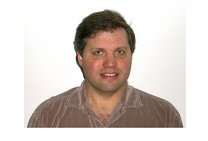Oral history interview with Yasushi Hiromi
- 1996-Nov-21 – 1996-Nov-22
Yasushi Hiromi was born in Kaizuka City, in Osaka Prefecture, Japan, the elder of two sons. His father was a biochemist and his mother a housewife. When Yasushi was about ten his father took a postdoc at Yale University, and the family lived in New Haven, Connecticut, for a year. There the two boys learned to speak idiomatic English. As a youngster Yasushi was fascinated by figuring out how things work. He was always good in mathematics and liked physics and chemistry. This desire to understand things is what drew him to science. When he entered the University of Tokyo his declared major was physics, but in his last year he did a rotation in Drosophila genetics in Yoshiki Hotta's lab, and he decided to become a biologist. In Japan it is usual to stay in the same lab for graduate school, and Yasushi liked Drosophila genetics, so he stayed in Hotta's lab. There he worked on phosphorylation and eclosion, and he found the heat shock response at room temperature. While in that lab he met Walter Gehring, in whose lab in Switzerland he took a postdoc. There he discovered the ftz (fushi tarazu) gene (fushi tarazu means "not enough segments"). This led to his career interest, the developing central nervous system. He accepted a second postdoc in Corey Goodman's lab at Stanford and then UC Berkeley, where he worked with Chris Doe on the seven-up gene, which he took with him when he joined the faculty at Princeton University. He wanted to learn about the relationship between ligand and receptor and how that relationship influenced the function of a gene. Each round of experiments required three or four months. He did this for five years, never obtaining the dispositive result for which he hoped. He did, however, get publications in very good journals. Although he is going back to Japan, to the National Institute of Genetics, he says he still prefers to do risky science. Hiromi still works at the bench. He likes a small lab because he then does have time to work at bench, rather than overseeing lab members. He looks forward to the challenge of a different system of doing science in Japan, where there is less emphasis on grant-writing, and he can exploit the joy he feels in solving problems. He will take the seven-up gene and a postdoc back with him; this person will have the position of joshu. Hiromi makes a point of having dinner and spending the early evenings and some weekend time at home with his wife and children. Balancing this time away from the lab with this family time means often working in the middle of the night, but he believes it is important to be with his family as much as he can.
Access this interview
By request 1 PDF Transcript File and 8 Audio Recording Files
Fill out a brief form to receive immediate access to these files.
If you have any questions about transcripts, recordings, or usage permissions, contact the Center for Oral History at oralhistory@sciencehistory.org.









